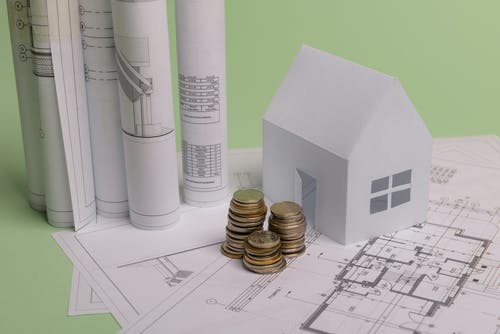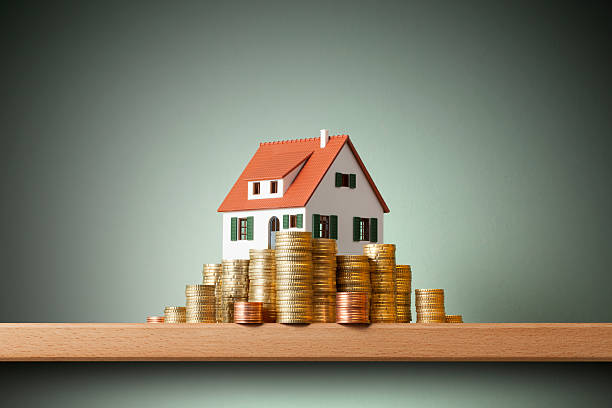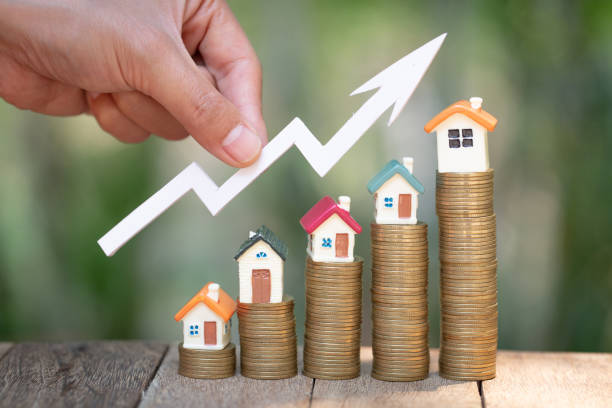By
|
Getting your Trinity Audio player ready...
|
As Mark Twain put it, “Buy land, they’re not making it anymore.” Although it involves complex transactions and thorough legal and financial understanding, real estate is still considered the safest investment one can make. While every investment option comes with its own set of pros and cons, real estate investments have seen a steady climb in returns historically. In this blog we will explore ‘how is real estate an investment’ and the steps we can take to ensure we make a viable buying decision.
How is Real Estate an Investment

In this article, we delve deeper into the pros and cons of investing and the things to keep in mind while investing in real estate for a holistic understanding of how is real estate an investment and things to consider while investing in Indian real estate markets.
Safety
Over the long term, real estate has proven itself to be the safest investment option globally. The real estate market has its occasional setbacks, but these are always temporary and over the long term real estate prices continue to rise on average. This is especially true in India where the market is slated to grow over the next decade. Since there is only so much land to go around, the demand for houses keeps increasing over the long term. So buying flats in Kolkata is a sound choice.
While the stock market has seen historical crashes where it has, on occasion, wiped out investors’ accumulated wealth in a matter of minutes, real estate has always bounced back from any lows and proved itself to be a reliable investment option. In fact, more people have become millionaires and billionaires from investing in real estate than in any other investment option globally. Hence, even the low price flats in Kolkata are sure to be a safe investment for the future.
Returns
So coming back to the main question: how is real estate an investment? The answer lies in the enviable returns. Let’s take a look at the numbers:
- The real estate industry in India stands at number three among the 14 major sectors in the economy and is the second-largest employer after agriculture. Investors in real estate can expect great returns if they wish to sell their property in the next few decades.
- According to the Indian Brand Equity Foundation, the real estate market in India will grow from Rs. 12,000 crore in 2019 to Rs. 65,000 crore in 2040. The sector is also expected to reach a market size of USD $ 1 trillion by 2030 and contribute 13% to the country’s GDP by 2025.
- A lot of this growth can be attributed to investments by Non-Resident Indians (NRIs) who are making inroads into the real estate market for both short-term and long-term gains. This trend can be seen in the sale of flats in Kolkata.
- Even the pandemic has not managed to dry up the demand for real estate. Experts suggest that pent-up demand will see an upsurge in property sales in 2021-22. Home sales in eight major cities across India actually jumped up 2.5 times between July and September 2020, suggesting that investor appetite remains healthy post lockdown.
Passive Income
If you’re still asking yourself, but ‘how is real estate an investment’, you have to consider the income-generating properties of real estate. Investing in real estate is a great way to make passive income through rental yield. Passive income puts your property to work for you. So whether you put in the work or not, you will keep earning money through rental income by investing in real estate.
Rental income in India has a high yield of 3-5% according to the Economic Times. Kolkata has one of the highest rental incomes in the country which is great news if you own ready to move flats in Kolkata, after Mumbai and Bangalore. A good real estate investment will assure you of rental income that can withstand the pressures of inflation by rising steadily over time. Earning passive income is a great way to build wealth. A steady inflow of rental income will also help you weather any financial storm in the other areas of your life.
Tax Benefits
The Indian government encourages citizens to invest in property by offering tax benefits on home loans. Borrowers can avail of tax deduction of up to Rs. 3.5 lakhs on home loans under Section 80EEA of the Income Tax Act. These home loan tax exemptions can only be claimed to purchase houses with a stamped value of up to Rs. 45 Lakh. Homeowners can claim the benefits on loans availed till 31st March 2021.
The finance minister also announced an income tax relief for buyers of new homes with a value up to Rs 2 crore. This relief is provided till June 30, 2021. As per the announcement, the acceptable differential between the circle rate and agreement value in real estate sale/purchase for the purpose of income tax is being hiked from 10% to 20%. The move is aimed at boosting demand for residential real estate by providing relief to home buyers.
A circle rate is a minimum rate per square foot for property fixed by the government. The rate varies from circle to circle or area-wise. This circle rate is used for the purpose of calculation of income tax payable on capital gains related to the sale/purchase of houses. In case the sale has taken place at a price lower than the circle rate, then a difference of up to 20% will be allowed under section 43CA of the Income Tax Act. Essentially, this allows the buyers/sellers to pay less tax up to June 30, 2021.
You can read all about the GST Rate on Real Estate and how it impacts homebuyers
Consider these things when Investing in Indian Real Estate

The major con of investing in real estate is that you need to spend a significant amount of money upfront. That amount does not include the associated ongoing maintenance costs that owning a property will involve. In case you wish to rent out your property, you will have to allow for the potential income gaps if you are between tenants for a time.
Plan your expenses
Before investing in property, make sure you account for paying your home loan EMIs every month. You also need to keep a certain amount set aside for utilities, upkeep, and repairs.
If you are depending on rental income for the payment of your EMI, make sure that the renter turnover rate is not very high as you will have to pay for the EMI out of your own pocket in between tenants.
Get Insured
It is best to insure your property against any unforeseeable damage that can be caused by natural and manmade disasters alike. Although this will be an additional expense, it is better to pay the insurance premium upfront than to regret not having insurance later.
Research the Property
Before purchasing any property, you have to be mindful of the paperwork involved and make sure that the title and deeds are all legal and clear of any dues. It might be wise to hire a real estate lawyer to help you with carrying out the sale transaction. Research the area around the property as well as find out about any upcoming projects or major roadways planned. Check out the neighborhood to see that it suits your needs. Good schools, hospitals, and recreation opportunities are essential considerations for the long-run.
Invest Within Your Means
Set up your budget and stick to it when buying property. Look for properties that meet the needs of your family today and in the near future. This includes a number of bedrooms and amenities that come with the development. Do not allow yourself to stretch beyond your means as unforeseen events like the recent pandemic can shake your financial foundations and make it hard for you to pay the monthly loan installments.
Conclusion
The above analysis is a primer on the quality of how is real estate an investment and things you must keep in mind while jumping into this field for the first time. Real estate is the safest and most profitable investment; for generations, people have trusted real estate as the true value creator one can make and we hope this article has fuelled your excitement for starting on your real estate investment journey.
Before you choose a flat to purchase, consider the following parameters:
Property price
Your financial budget
Carpet area of the flat
Land record
Legal check of the property
Apartment possession date
Financing banks
Builder-buyer agreement
Location of the flat.
1 bed flats in a good locality is a good investment opportunity. With good connectivity to work hubs, transportation, schools, and entertainment centers— 1 bed flats are much sought after by millennial tenants who are willing to sacrifice the space too.
Independent houses are a great form of investment— the number is less, therefore the demand is greater. They offer more space, privacy, and scope to expand and modify. Furthermore, independent houses are detached and spacious, making them a great purchase for kids and senior citizens.
Flats on the other hand, have in-built security amenities. The options are varied and in great number, so you may be spoilt for choice and the demand is also higher. Renovation and expansion costs are less expensive than the regular maintenance costs of independent houses.
Based on a poll conducted by Reuters, the expected average house price was expected to fall 6% in 2020 and 3% in 2021. Furthermore, real estate experts predict, with the effects of the pandemic, property prices will further drop by at least 10%.
Three potential advantages of putting down at least 20% are:
No payment on mortgage insurance.
The monthly payment will be lower.
There is a possibility to earn a lower mortgage interest rate.
Investing in flats and other form of residential real estate investments is considered a sound decision for long-term financial planning. Whether you own a flat or not, you need a place to stay which will come at a cost, i.e., rent if you do not own a property of your own. Which is why, most people think it better to invest in a flat in the city they plan to reside in long-term. By availing various home-loan facilities, one can participate in the process of asset creation in the long-term instead of by burdened by a life-long outflow of rent. Moreover, as the price of real estate rises steadily in the long-run, this activity will also lead to handsome capital appreciation in the future.
Leave a comment







